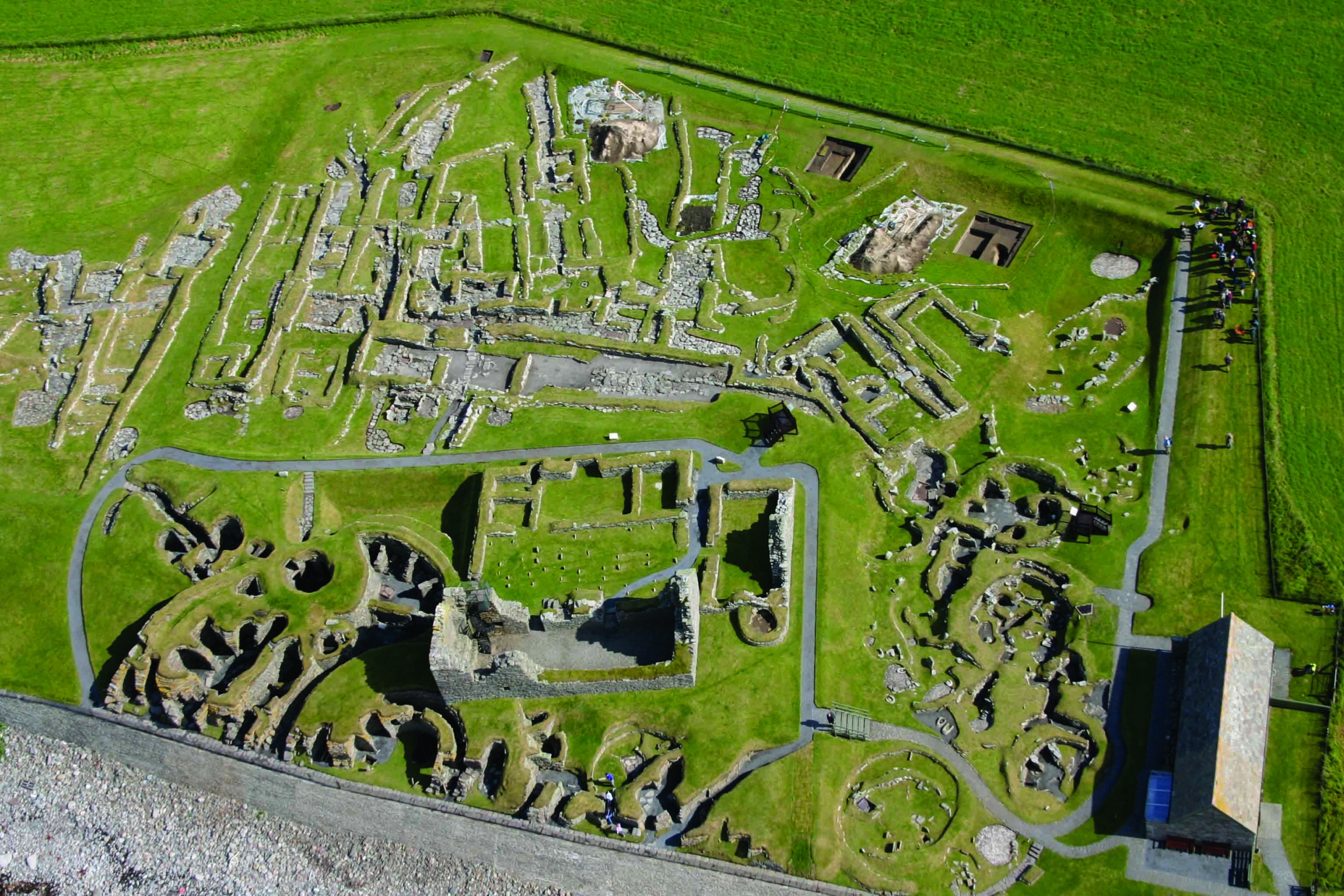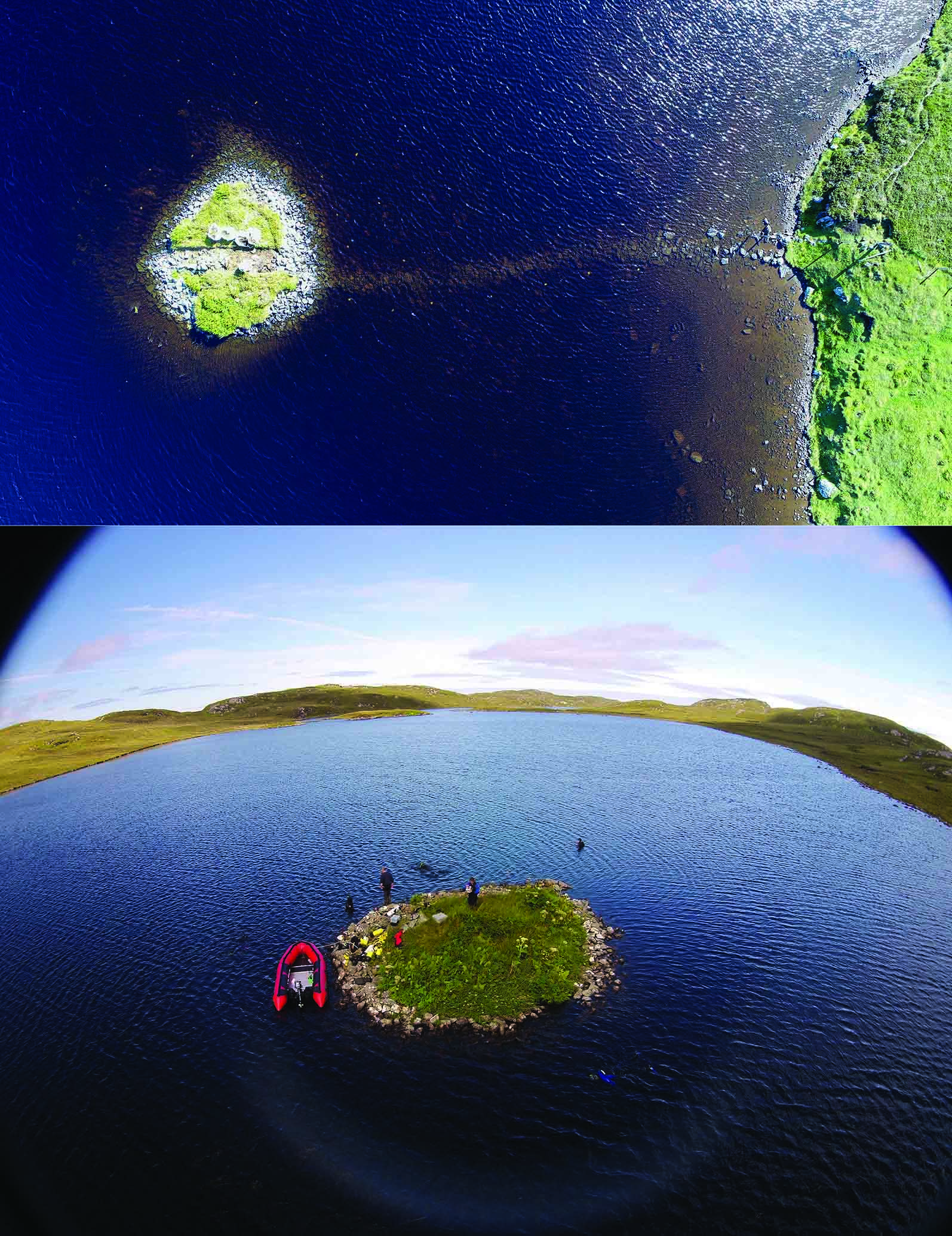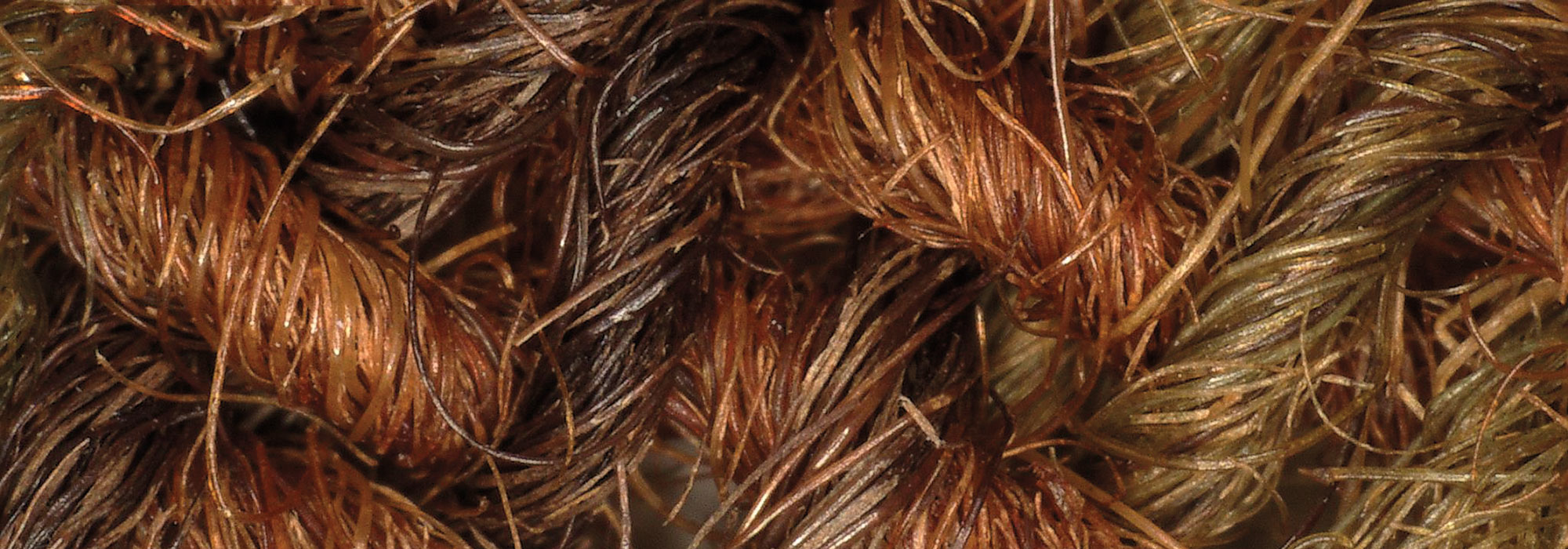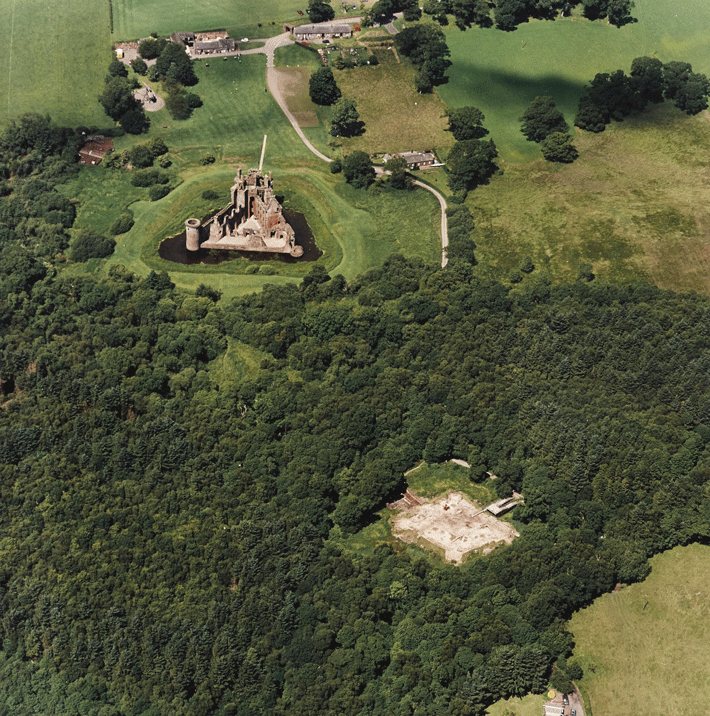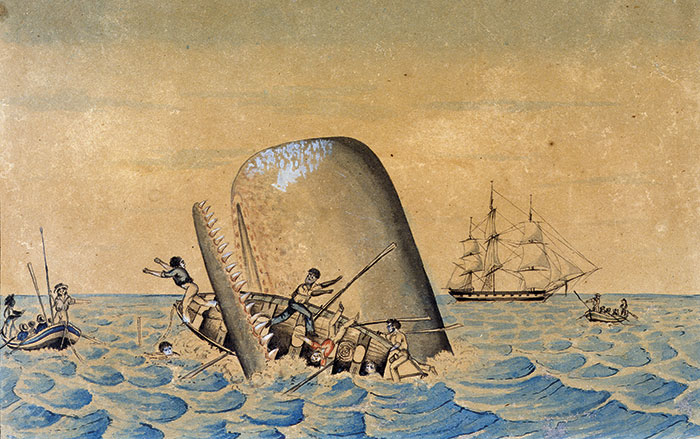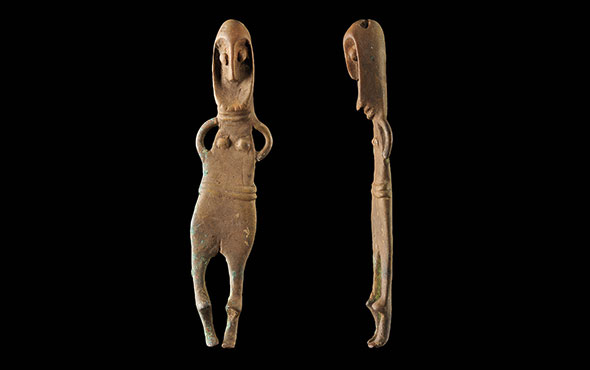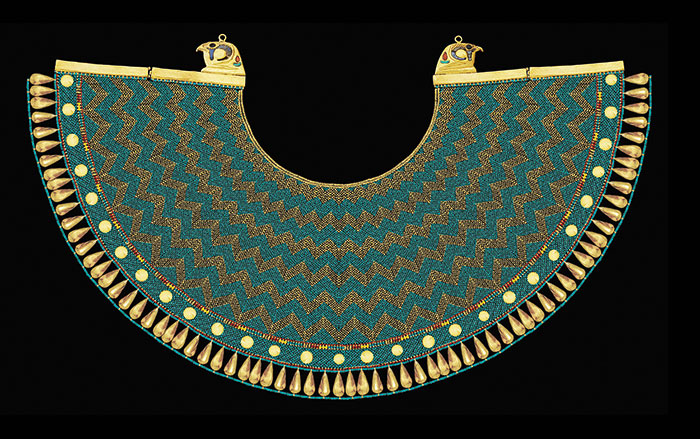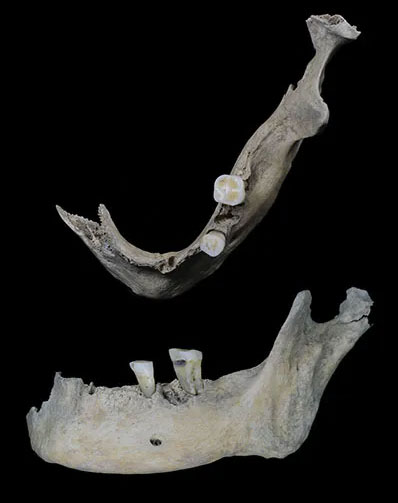
SOUTH RONALDSAY, ORKNEY—An elderly woman who lived on an island off Scotland’s northern coast some 1,800 years ago ate a diet rich in seafood throughout her life, according to a BBC News report. A team of researchers from the University of Highlands and Islands and the University of York analyzed the ratios of chemical isotopes in one of the woman’s teeth and her jawbone, which were found in a container made from a whale vertebra that had been placed against the wall of the broch, or roundhouse, at The Cairns. At the end of her life, she had few remaining teeth, and those she had left showed extensive decay, the researchers explained. It had been previously thought that she may have eaten soft marine food out of necessity, but the new analysis of the individual layers of dentine in her teeth shows that she consumed marine protein throughout her life. Further investigation will try to determine if the woman played a special role in her community, perhaps reflected in her fishy diet and the deposition of her remains in the broch, or if Iron Age Britons ate seafood more often than the few fishbones found in Iron Age middens would suggest. For more on Orkney, go to "Neolithic Europe's Remote Heart."


